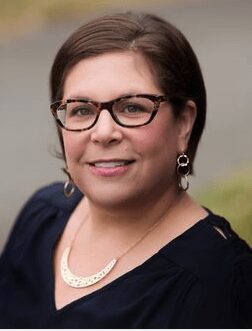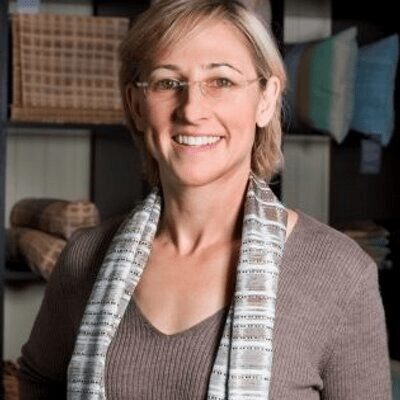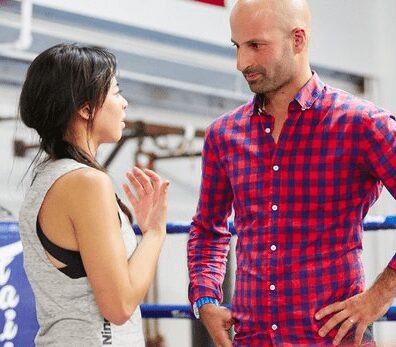If you’re setting out to create your social enterprise for the first time, or even the second or third, it’s worth getting as much advice as you can beforehand.
And who better to go to than successful social entrepreneurs who have done it all before?
We’ve highlighted five useful insights from individuals who have been there, done that, and want to share their knowledge with you.
Finding the right partners
Joanne Sonenshine, founder & CEO Connective Impact: Partnership in social enterprise: how to find the right partners and further your impact

Image Connective Impact
Joanne Sonenshine is CEO of Connective Impact, a group that helps other organizations with the aim of solving complex problems from all over the world, including climate change, agriculture, and poverty alleviation.
This piece is a great example of the importance of how finding the right partner fit — whether it’s a charitable organization, a supplier, or even your marketing partner — is vital for the success of an enterprise.
In the article, Joanne also outlines the value of identifying goals and objectives before embarking on a partnership. This is as valid for her as it is for any industry: it might seem simple, but understanding your venture’s goal before setting out serves to guide you as you begin to grow. Your enterprise is your vision, and as such you need to ensure that the parties you are sharing it with have the same shares goals as you.
Think about your company mission. What is it you’re setting out to do? Once you’ve identified it, you need to ask the same of anyone else your business will engage with. Will they work with you to achieve that mission, or strike out on their own? Answering this question is particularly important for a social enterprise, because you’re setting out to help others, not just yourself.
A sense of place
Eve Blossom, Co-founder & COO at WE’VE: Seeking a Sense of Place

Image Twitter
Eve Blossom is a designer, architect and social entrepreneur. She is co-founder of WE’VE BUILT, a for-profit venture that creates stable jobs for potential victims of human trafficking by connecting artisans with designers to create modern products.
In this talk, Eve describes her love of space. She “breathes in the serenity” of a favorite space of her childhood, starting her journey to become an architect. Eve’s career leads her to found WE’VE Built, a venture aimed at creating stable jobs for those most at risk of human trafficking. It’s a great enterprise, but it’s her journey to that place which we can all learn from.
Eve realises from her childhood experience in a neighbor’s garden the value of a safe, calming space. The place in which you are can have a profound effect on you as an individual, and this is as true at home as it is in the workplace. You will spend a significant number of your waking hours at work, and so you need to ensure it is a place that you can feel centered.
Of course, work is not without its stresses, especially as an entrepreneur. However, your office can have a significant impact on your company culture. The design of your workplace is the foundation of your office culture, from its layout to its decor. If it is cramped, dimly-lit or poorly structured, you and your employees will feel it.
One need only look at the workplace of big brands like Google or Etsy to see how naturally-lit open place offices can create a positive, collaborative atmosphere. Indeed, as Eve says, a good space can even be therapeutic for an individual. While your social enterprise’s might seem limiting for office space, you can still create a positive space to work in, and it’s well worth it.
Turn subscribers into impact makers
Will Russell, founder of Will Russell Marketing: Turn email subscribers into impact makers

Will Russell is a digital marketer based in California, and is the founder of Will Russell Marketing. His company works to help social enterprises and non-profit organizations leverage marketing to increase expand their influence in their field.
In this webinar, Will talks about the value of the humble email. Often living in the shadow of newer channels such as social media, he outlines the far-reaching benefits of email marketing. As he says, for every $1 spent on email marketing, the average return is $44.25. Despite this, in Will’s work with nonprofits and social enterprises, he has found that most of them either don’t employ email marketing, or don’t consider it a priority.
However, email is a hugely valuable channel of communication. Not only does it net such a great return on investment, but it is also one of the cheaper marketing options out there when compared with paid ads.
Will’s real focus is on email marketing automation. As a social enterprise, your budget is often much tighter than commercial enterprises, and time is not a resource you have in abundance. Will demonstrates that email automation can reduce the time spent on your marketing, as well as increase efficacy considerably.
Rather than having to attend to the nitty-gritty of a campaign, you can construct a sustained email sequence that caters to each stage of your customer journey. Moosend is great for automating email on a budget as it doesn’t cap subscribers, but you need to stay focused on your mission so that you don’t just blast people with generic messaging. Like Will said, you are looking for impact makers.
Focus on your offering
Ido Leffler, founder of Yes to Carrots: How To Get A Product Into 25,000 Stores

Image Twitter
Ido Leffler is the founder of Yes to Carrots, a cosmetics company whose products are made of 95% natural ingredients.
In this interview, he talks candidly about his family, how they lost their money in the recession, and his journey to where he is today. However, the resounding lesson he delivers is that it all comes down to the product: “Why would I buy a product that wasn’t 100%?”
At the end of the day, everything else pales into comparison when it comes to your product. That is what will grow your enterprise, and as such you have to believe in it. But to first believe in it, you need to create it, and that means research. Ido describes visiting trade shows, doing research on what products were on the market, what was selling and what wasn’t. It was a labor of love for the founder of Yes To Carrots, and the result is a product which is now sold in 25,000 stores worldwide.
When it comes to the product or service your social enterprise provides, you need to believe in it. That means it will come as a result of hard work and research, and therefore from a place of love.
Do something meaningful
Tony Xu, CEO of DoorDash: Q&A With DoorDash CEO on New Initiative to End Hunger and Waste in American Cities
Tony Xu is the CEO of DoorDash, a restaurant delivery service founded in 2013. While it might not sound like a social enterprise on the face of it, DoorDash recently launched Project Dash, an initiative aimed at reducing hunger and food waste across the nation.
The initiative is impressive, and DoorDash is tackling one of the biggest issues of the day. Over 40 million people rely on food banks in the US alone, a figure that includes 13 million children. This figure is only set to rise as the government looks set to implement further cuts to federal anti-poverty programs. DoorDash’s operation will help thousands of hungry people in the three cities in which it is being initially rolled out. Ultimately, it will impact people’s’ lives for the better.
And really, that’s the lesson to take away from this interview: whatever you do, make it meaningful. Your social enterprise has the power to make a difference in the world, and that needs to be the driving force behind everything it does.
Your social enterprise is your own, your vision that you want to succeed. Take a lesson (or five) from the individuals above, and turn your ambition into a reality.








